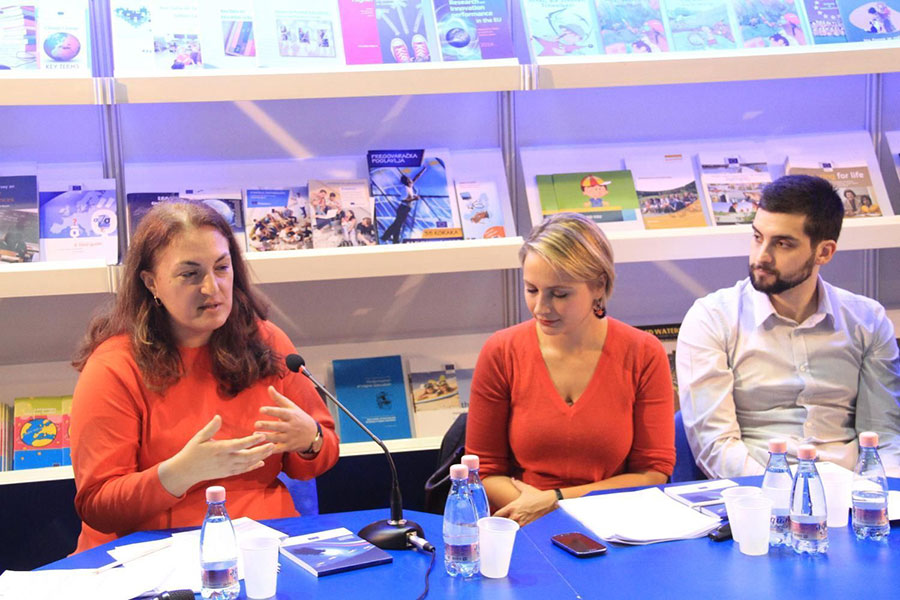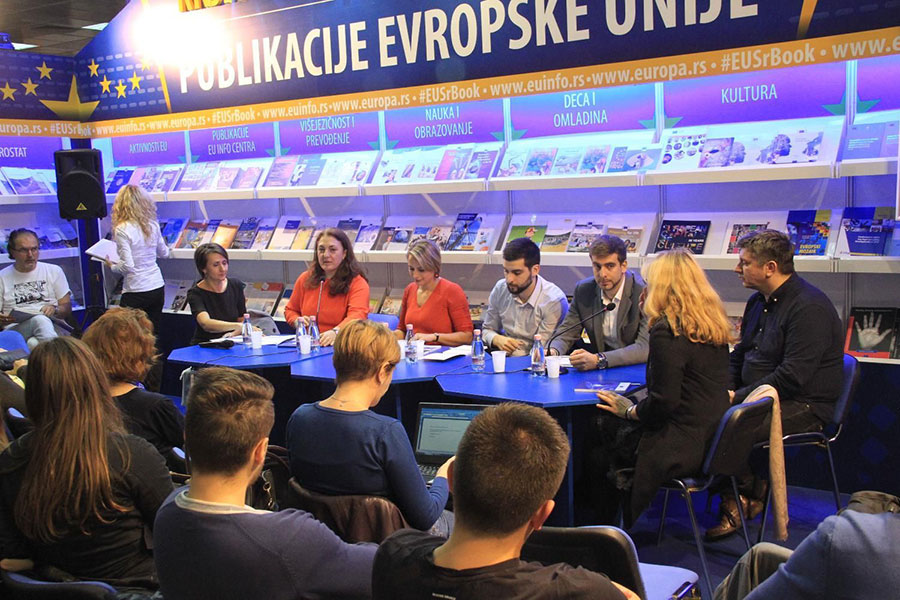Photo: FoNet
Crucial role in shaping citizens’ views on the EU is played by perception and emotions, much less by the facts and rational thinking, but at the same time citizens are aware of the fact that the EU is irreplaceable as a partner – this was the message of the round table “Citizens’ Perception of European Union” held at the Book Fair, within EU book stand programme.
Assistant Director of Serbian European Integration Office Ivana Djuric said that citizens’ support to EU integration was growing each time they felt they belong in the Union and noted that maximum support was registered when Serbia was granted visa-free regime in 2009 and hosted Eurovision Song Contest in 2008. “Citizens decisions are based on their emotions, much less on actual facts,” Djuric said.
Communication Officer at the EU Delegation to Serbia Nadezda Dramicanin said that perception of the EU should be relocated from the collective and emotional and put in individual context, for instance in context of brining real benefit to people.
“The main reason behind citizens’ support to EU accession lies in improvement of economic standards,” Dramicanin said. She mentioned that the Union was the first and most important Serbian partner and, with EUR3 billion of assistance in the past 15 years, its biggest donor.
Commenting on the claims that EU membership would have adverse effect on the preservation of national identity, she said that Serbia’s image could only grow stronger once it joins the Union.

Photo: FoNet
“We can maintain our identity by engaging in all EU mechanisms and make our voice heard. If we have our place at the table in EU institutions and cooperate at EU level on a daily basis, our identity and image can only grow stronger,” Dramicanin said.
Political Editor at Blic daily Nikola Tomic said that main responsibility of TV and print media, and their biggest mistake, was the fact that they base their opinion about the EU on state politics. He said that short-term crises in EU-Serbia relations, such as the one caused by information about German amendment to platform for the Chapter 35, left deep consequences on citizens’ perception.
Tomic, however, believes that the role of media in shaping citizens’ views is overrated and that politicians should not hide behind the media, stating that crisis regarding German amendment was generated by Serbian officials.
Ivana Djuric said that the role of media was to inform citizens on the developments and not make them up, and that job of Government officials was to tackle the issues surrounding the EU and shift the focus using communication.
She said that, according to the latest survey about the EU, conducted by the Government Office for European Integration, 49 per cent of citizens were supportive of EU membership, 28 per cent were against it, whereas the rest of respondents were indifferent or provided no answer at all.
Opposing membership is largely based on citizens’ fear of losing social benefits and national identity, said Ivana Djuric and added that young people were generally ambivalent when it comes to European integration.
Djordje Jovicevic of Serbian Youth Umbrella Organisation, which brings together 78 organisations, said that it was hard to motivate young people and make them fight for things that mattered to them, such as studying in the EU. Also, they showed no interest in political issues. He believes that the possibility of studying in the EU would let them learn more about it.
Coordinator of Forum for Diplomacy and International Relations of the Faculty of Law Marko Antic said that it would be interesting to see how many people seized the opportunity of travelling to EU Member States since the visa-free regime came into force.
“If the percentage of people who seized benefits of EU accession turned out to be low, such would be their opinion of the Union,” Antic said.




